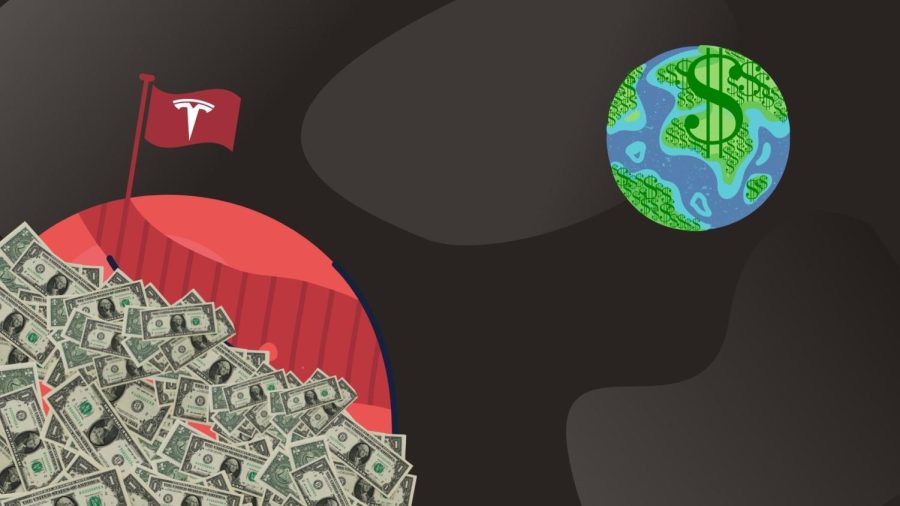Move Over, Student Loans; Space Loans Are Calling!
Please don’t become an indentured servant on Mars; debt needs to stay on Earth
February 4, 2022
Debt plagues about 80% of the American population, and if Elon Musk has any say in the matter, there will be debtors on Mars as well. The billionaire, known for his SpaceX and Tesla ventures, said that anyone sent to Mars for work will have to pay their way to the planet, with “loans available to those who don’t have money.”
His response to how employees can pay off the loans? There’ll be plenty of jobs on Mars.
On the surface, this makes sense. Many employers on Earth don’t pay for transportation fees, but this relocation is an excessively large cost to put onto the backs of laborers whom Musk assumes would be willing to risk a move to Mars. With a goal of a million humans on Mars by 2050, there are a lot of people for Musk to profit off of before they even step on the planet.
Should employees really have Earth debt … on Mars?
By taking out loans to work, an employee is investing their money into the goldmine they assume Mars will be. However, they don’t gain anything out of their relocation apart from a potential pat on the back and a paycheck that will not begin to cover their transportation debt, let alone the cost of living on a planet with a scarce food supply.
Just because Mars may be our plan B when the world ends, anyone who’s read or watched “The Martian” by Andy Weir knows that it’s not an easy planet to live on. Mars will need highly educated crews to terraform the planet, but most importantly, it will need hard labor.
This hard labor, though not valued as much today on Earth, will be the difference between habitability and death. We need launch pads, but we also need houses, farms and, put simply, work that no robot could replace. This work is dangerous on Earth, so one could only imagine the risk adopted by those performing this labor during Mars’ many dust storms. Musk has demonstrated his lack of regard toward his employees on Earth, unfortunately foreshadowing his potential attitude toward employees on Mars.
If Mars is a colony and not just a tourist attraction, it shouldn’t have a large percentage of its residents under pressure to pay for their ride there.
Knowing all this, are we going to start yet another colony on the backs of laborers riddled with debt? To put it mildly, people on Earth have a troubling history of relying on the underpaid and overworked. This is an undervaluation of the work that will be expected of these first colonists and a horrible precedent to set on a new world. Should employees really have Earth debt … on Mars?
I’d also argue that indentured servitude and debt of such large proportions would start this colony off on the wrong foot. As we’ve learned from the COVID-19 pandemic, debt doesn’t stimulate growth. If Mars is a colony and not just a tourist attraction, it shouldn’t have a large percentage of its residents under pressure to pay for their ride there.
Space is a place of unbridled mystery and exploration, and we’re converting it even more into dollar signs. This is ultimately an opportunity to start a world in which people aren’t crushed underneath loans and paying off decisions that may help them achieve upward mobility. Mortgages, along with medical, auto and student debt are all symptoms of an economy that does not provide its people with what they need to flourish. We have an opportunity, and an obligation, to start anew on this brand new, shiny (read: dusty) planet.
Musk leaves much to be desired as a capitalist on Earth, and if we’re going to start a new planet, there must be a system of accountability for those who are creating a habitable planet for future generations. Unfortunately, if we already start with debt, there’s going to be a system of accountability focused on those who have a negative net worth, instead of prioritizing the rights of laborers and the working class to work toward a flourishing economy.
If you’re considering this trek into space, make sure it makes sense for you to make this step. Taking out loans to get to Mars means you are investing in a planet that may not give you a return, just a whole lot of dust.


















